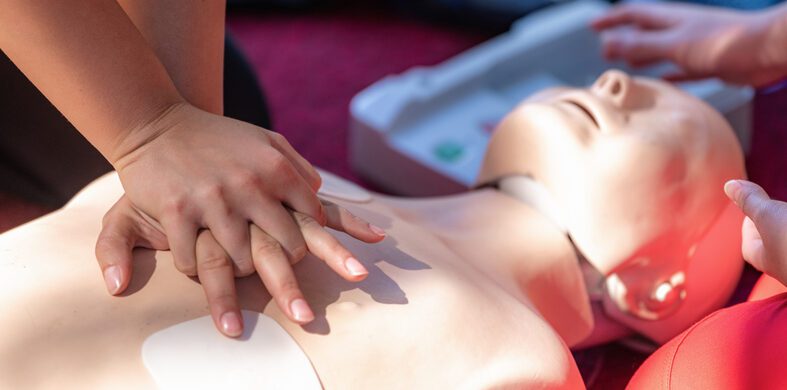Cardiopulmonary resuscitation (CPR) is a fundamental skill for healthcare professionals, as it plays a critical role in saving lives during emergencies. Whether you’re a nurse, doctor, paramedic, or any other healthcare provider, maintaining up-to-date CPR certification is essential. This article will guide you through the requirements, renewal process, and other important aspects of CPR classes for healthcare professionals.
Initial CPR Certification
Healthcare professionals are required to undergo specific training to obtain CPR certification. This training ensures that they have the knowledge and skills to perform CPR effectively. Here are the key components of initial CPR certification for healthcare professionals:
- Basic Life Support (BLS) Certification: BLS is the foundation of CPR training for healthcare providers. It covers essential skills like chest compressions, rescue breaths, and the use of automated external defibrillators (AEDs). BLS certification is typically valid for two years.
- Advanced Life Support (ALS) Certification: ALS is a more comprehensive level of CPR training that is often required for certain healthcare roles, such as critical care nurses, anesthesiologists, and emergency room physicians. It includes advanced techniques and medications used in life-threatening situations.
- Pediatric Advanced Life Support (PALS) Certification: PALS focuses on the unique needs of pediatric patients. It is essential for healthcare professionals who work with children in settings like pediatric wards or emergency departments.
CPR Renewal for Healthcare Professionals
Maintaining current CPR certification is crucial for healthcare professionals. CPR techniques and guidelines may evolve over time, so regular updates ensure that you’re equipped with the latest knowledge and skills. Here’s what you need to know about renewing your CPR certification:
- Renewal Period: BLS certification typically needs to be renewed every two years, while ALS and PALS certifications may have different renewal timelines. It’s important to check with your certifying organization for specific requirements.
- Continuing Education Credits: Some certifying organizations may require healthcare professionals to complete a certain number of continuing education credits related to CPR and emergency care as part of the renewal process.
- Skills Assessment: Depending on the certifying organization, a skills assessment may be required for CPR renewal. This involves demonstrating proficiency in performing CPR techniques, including chest compressions, rescue breaths, and AED use.
- Written Exam: In addition to a skills assessment, a written exam may be part of the CPR renewal process. This ensures that healthcare professionals have a comprehensive understanding of the latest guidelines and techniques.
- Online Renewal Options: Some certifying organizations offer online CPR renewal courses, which can be a convenient option for busy healthcare professionals. These courses often include a combination of online modules, written assessments, and skills evaluations. Y-CPR Academy does not offer online CPR classes but we do offer mobile CPR classes where we will come to your workplace to train your team or staff. This article aims to compare the benefits of in-person CPR training and online CPR training, helping you make an informed decision based on your individual needs and preferences. Learn more about our mobile classes where we come to your workplace for hands-on CPR training.
Choosing a CPR Certification Provider
Selecting a reputable CPR certification provider is essential for healthcare professionals. Here are some factors to consider when choosing a provider:
- Accreditation: Ensure that the certification provider is accredited by a recognized organization, such as the American Heart Association (AHA), the American Red Cross, or the American Safety and Health Institute (ASHI).
- Course Content: Verify that the course content aligns with the specific CPR requirements for healthcare professionals. Different roles may have distinct CPR certification needs.
- Instructor Qualifications: Look for experienced and certified instructors who are knowledgeable in the latest CPR guidelines and techniques.
- Certification Validity: Confirm the duration of the certification and the renewal process. This information will help you plan for future recertification requirements.
- Course Format: Consider whether you prefer in-person training, online courses, or a combination of both. Choose a format that fits your schedule and learning style. Learn more about our mobile classes where we come to your workplace for hands-on CPR training.
Staying Informed About CPR Guidelines

